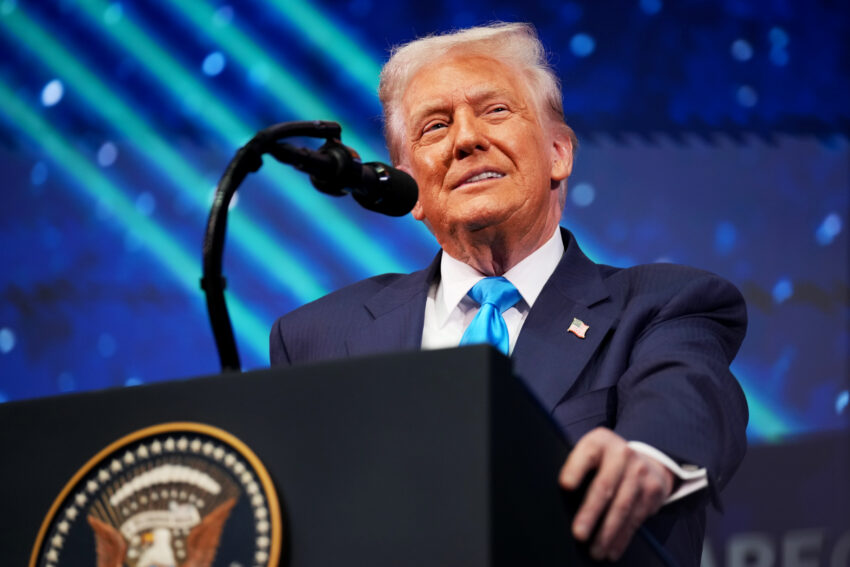
trump says us will restart nuclear weapons Former President Donald Trump has announced plans for the United States to resume nuclear weapons testing, a move that could significantly alter the landscape of international arms control.
trump says us will restart nuclear weapons
Trump’s Announcement
In a recent post on Truth Social, Donald Trump stated that he has directed the Pentagon to commence nuclear weapons testing immediately. He cited the necessity to keep pace with the nuclear testing programs of other nations, although he did not provide specific details regarding the nature of these tests. It remains unclear whether Trump is referring to explosive tests of nuclear warheads or tests of systems capable of delivering them.
This announcement comes at a pivotal time, just before Trump’s anticipated meeting with Chinese President Xi Jinping. The timing is noteworthy, as it follows a period of reduced tariffs on Chinese imports, suggesting a complex interplay of diplomatic and military considerations. Trump’s declaration appears to challenge decades of established American policy regarding nuclear weapons testing and arms control.
Historical Context
The last nuclear test conducted by the United States occurred in 1992, marking the end of a significant era in nuclear testing. Following the Cold War, President George H.W. Bush enacted a moratorium on nuclear tests, a decision that was largely viewed as a step toward global disarmament. Since then, the U.S. has adhered to a policy of restraint, focusing instead on diplomatic efforts to manage nuclear proliferation.
In the years since the last U.S. test, the global landscape has shifted dramatically. The international community has witnessed a resurgence of nuclear ambitions in several countries, particularly North Korea, which has conducted multiple nuclear tests since 2006. This has raised concerns among U.S. allies and prompted discussions about the effectiveness of existing arms control agreements.
Implications of Resuming Testing
Trump’s announcement raises several critical questions regarding the implications of resuming nuclear weapons testing. The potential resumption of tests could have far-reaching consequences for global security and diplomatic relations.
Impact on International Treaties
The United States is a signatory to the Comprehensive Nuclear-Test-Ban Treaty (CTBT), which prohibits all nuclear explosions. Although the U.S. has not ratified the treaty, its commitment to refraining from nuclear testing has been a cornerstone of its non-proliferation policy. A return to testing could undermine this framework and embolden other nations to pursue their own nuclear ambitions.
Moreover, the resumption of nuclear testing could strain relationships with key allies. Countries such as Japan and South Korea, which rely on the U.S. nuclear umbrella for their security, may view this move as a destabilizing factor in an already volatile region. The potential for an arms race in East Asia could escalate tensions and lead to a more precarious security environment.
Domestic Reactions
Reactions within the United States have been mixed. Some supporters of Trump argue that resuming nuclear testing is necessary to ensure that the U.S. maintains a credible deterrent against adversaries like Russia and China. They contend that advancements in foreign nuclear capabilities necessitate a reevaluation of U.S. nuclear policy.
Conversely, many experts and lawmakers have expressed concerns about the ramifications of such a decision. Critics argue that resuming nuclear testing could provoke a new arms race and undermine decades of progress in nuclear disarmament. They emphasize the importance of maintaining diplomatic channels and engaging in arms control negotiations rather than escalating military capabilities.
Global Reactions
Internationally, the announcement has elicited a range of responses. Countries that have historically opposed nuclear testing, such as those in the European Union, have condemned the move. They argue that it threatens the fragile balance of power and could lead to increased tensions among nuclear-armed states.
Russia, which possesses the largest nuclear stockpile in the world, may view the U.S. decision as a challenge to its own nuclear strategy. The Kremlin has previously expressed concerns about U.S. missile defense systems and military exercises near its borders. Trump’s announcement could exacerbate these tensions and lead to a recalibration of Russia’s military posture.
Technical Considerations
The technical aspects of nuclear testing are also crucial to consider. Resuming tests would require significant investments in infrastructure and technology. The U.S. would need to ensure that its testing facilities are operational and that it has the necessary scientific expertise to conduct tests safely and effectively.
Furthermore, the nature of the tests—whether they involve new warhead designs or the testing of delivery systems—could influence the international response. Tests aimed at modernizing existing arsenals may be viewed differently than tests involving entirely new nuclear capabilities.
Conclusion
Trump’s announcement to restart nuclear weapons testing marks a significant departure from decades of U.S. policy aimed at nuclear restraint and non-proliferation. The implications of this decision are profound, affecting not only U.S. national security but also global stability and international relations.
As the situation unfolds, it will be essential for policymakers to carefully consider the potential consequences of resuming nuclear testing. Engaging in dialogue and diplomacy may prove to be more effective strategies for addressing the challenges posed by nuclear proliferation than a return to testing.
Source: Original report
Was this helpful?
Last Modified: October 30, 2025 at 4:36 pm
1 views















